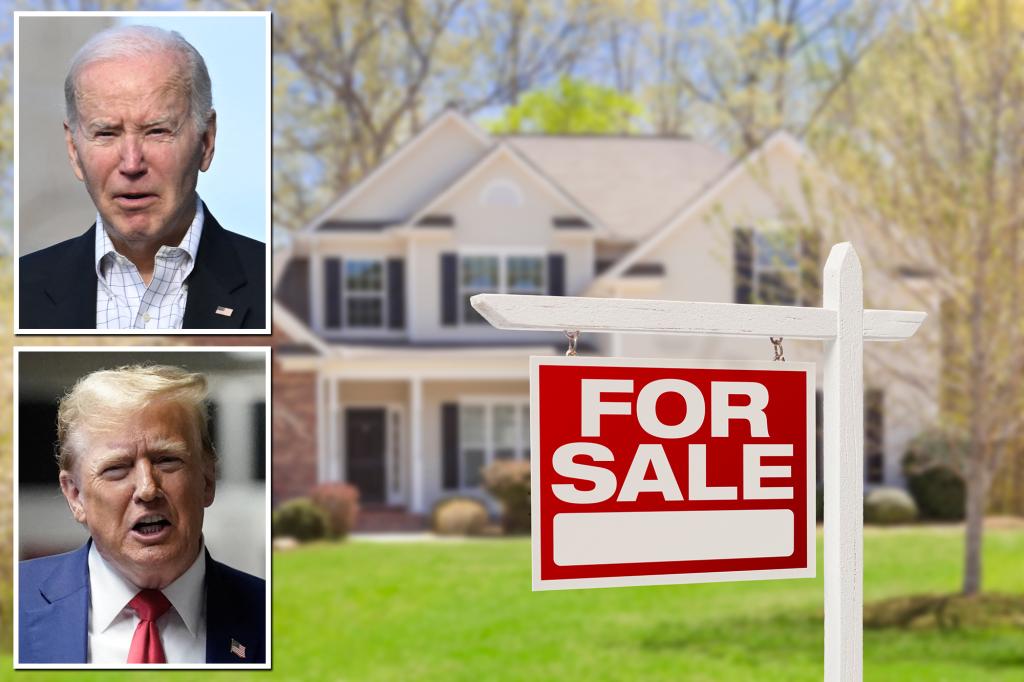In the lead-up to the 2024 presidential election, home prices and housing affordability have become key issues, unlike in previous election years. The affordability crisis is garnering attention, with mortgage rates rising and home prices becoming out of reach for many first-time buyers. Both President Biden and former President Trump have addressed the issue in their campaigns, with proposals and criticisms directed at each other regarding housing policies. The debate is crucial in swing states such as Nevada, Arizona, Georgia, Michigan, North Carolina, Pennsylvania, and Wisconsin, determining the outcome of the election.
Housing affordability has reached unprecedented levels, with median list prices up 28% since 2021, and the home price-to-income ratio hitting a record high of almost 6-to-1. Renters are also struggling, with a significant portion of them spending more than 30% of their income on rent. These challenges contribute to the difficulty many renters face in saving up for a down payment on their first home, potentially impacting their attitudes toward the election. The urgency of addressing housing affordability has made it a key concern for Americans of all demographics and political affiliations.
President Biden has proposed various initiatives to address housing costs, including tax credits for first-time homebuyers and those selling their starter homes to trade up. However, there are concerns that these tax credits could further drive up home prices by increasing demand. Some economists argue that focusing on the supply side, such as building more houses, is crucial to solving the issue of rising home prices. Biden’s proposals aim to boost affordability and homeownership but may need to navigate the complexities of Congress, especially in an election year.
Former President Trump has taken a different approach to housing policy, criticizing efforts to increase home affordability as a “war on the suburbs.” He claims that Democratic initiatives would destroy property values by expanding affordable housing options. Trump’s messaging targets existing homeowners, emphasizing concerns that reducing housing costs for others could devalue their own homes. His stance on housing is seen as an appeal to fears and resistance to change in suburban neighborhoods, tapping into anxieties about property values and neighborhood changes.
Housing affordability is likely to be a significant issue in the upcoming election, appealing to both independent voters and partisan supporters of both candidates. Biden’s focus on boosting affordability is geared towards renters and aspiring first-time homebuyers, while Trump’s messaging resonates more with homeowners seeking to protect property values. The demographic makeup of voters, with homeowners being more engaged politically than renters, could influence how housing policies impact the election. Younger voters, historically leaning Democratic, may be a key target for Biden’s proposals to mobilize support.
As the election approaches, the balance between appealing to renters seeking affordability and homeowners focused on property values will be crucial for both candidates. The state of the housing market, marked by rising prices and affordability challenges, poses a significant hurdle for Biden in winning over voters dissatisfied with the current situation. Both candidates face the task of navigating the complex housing landscape to secure support from a diverse range of voters, ultimately shaping the outcome of the 2024 election.


